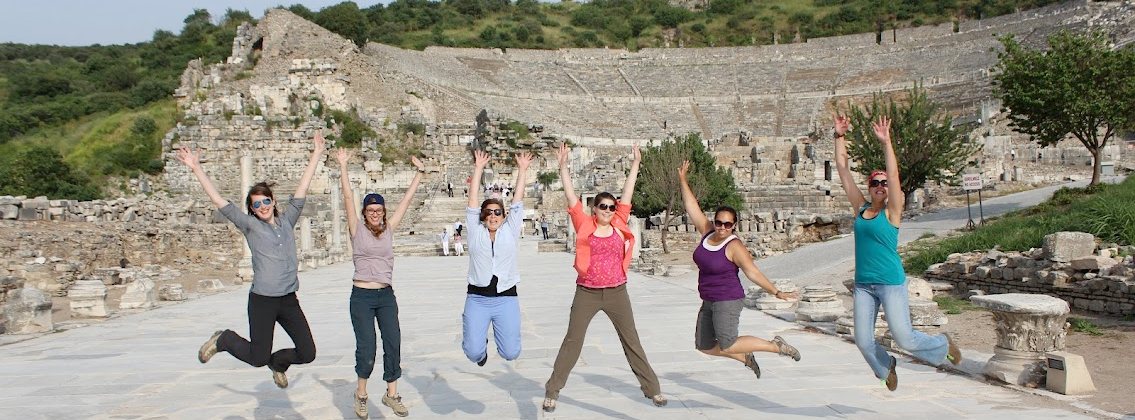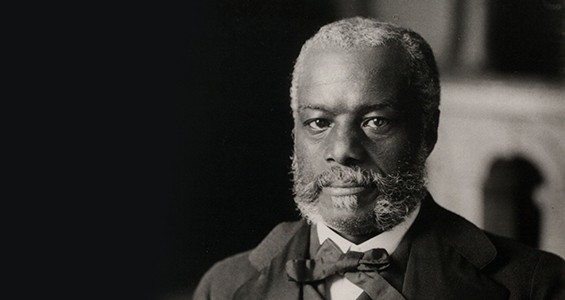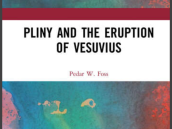Two reviews of Pliny and the Eruption of Vesuvius have come out, one by Margot Neger in BMCR, and one by Paolo Bernardini in La Provincia di Como (here is the PDF and a translation). I should note that the Addenda et Corrigenda on the publisher’s website has also been updated, in order to address the few but unfortunate errors in the text; thank you to colleagues and reviewers for pointing those out.
-
-
Herculaneum Society: Pliny the Younger and the Date and Sequence of the Vesuvian Eruption
Two talks for the Herculaneum Society, based at Oxford, 26 February 2022, now on YouTube:
- Professor Pedar Foss, DePauw University, on “Ashy Tuesday-Wednesday: The Date and Sequence of the AD 79 Eruption;”
- Professor Roy Gibson, Durham University, on “From Como to the Bay of Naples: Pliny’s Epistolary Italy.”
-

ROMARCH: Rome: City and Country; U. Reading Symposium, 11 May
Rome: City and country
A symposium in honour of Professor Annalisa Marzano
Department of Classics, University of Reading
11th May 2022, 2-5 PM
Programme
2.00 – 2.20
‘Introduction’
Barbara Goff and Amy Smith, University of Reading
2.20 – 2.40
‘Big data in the Roman countryside: The Roman Hinterland Project’
Rob Witcher, Durham University
2.40 – 3.00
‘Picking up the pieces’
Wim Jongman, University of Groningen
3.00 – 3.20
Break
3.20 – 3.40
‘Quantifying the built environment of Rome’
Jack Hanson, University of Reading
3.40 – 4.00
‘Recent research in South-East Rome: An introduction to the Rome Transformed Project’
Ian Haynes, Newcastle University
4.20 – 4.40
‘The Augustan horticultural revolution’
Annalisa Marzano, University of Reading
The event will be held both in person and online.
The link for joining the event remotely is as follows: https://teams.microsoft.com/l/meetup-join/19%3ameeting_NWJlNGJjNmYtOGM0NS00N2M3LWE0ODMtOGZhY2I5NmEzZDM4%40thread.v2/0?context=%7b%22Tid%22%3a%224ffa3bc4-ecfc-48c0-9080-f5e43ff90e5f%22%2c%22Oid%22%3a%22ab142154-1453-4d9e-93ec-c6a8991e6c42%22%7d
For more details, please contact Dr J. W. Hanson at j.w.hanson@reading.ac.uk.
-
Pliny and the Eruption of Vesuvius – publication March 2022
 Pliny and the Eruption of Vesuvius (Routledge, March 2022) is in press. Here is how to order for your library at a 20% discount. My blog posts about the Vesuvius eruption are well obsolete, but I will leave them as-is for archival purposes. The book is about Letters 6.16 and 6.20, and contains these chapters:
Pliny and the Eruption of Vesuvius (Routledge, March 2022) is in press. Here is how to order for your library at a 20% discount. My blog posts about the Vesuvius eruption are well obsolete, but I will leave them as-is for archival purposes. The book is about Letters 6.16 and 6.20, and contains these chapters:- Two Plinys: Short biographies of the Elder and Younger Pliny, setting the context for the Vesuvian letters.
- Two Letters: A reconstruction of the transmission history of Epp. 6.16 and 6.20 within the context of the whole manuscript tradition of the Epistulae. This is based on the collation of every known and available extant manuscript and early printed edition of the text of those letters (which has never been done before).
- Two Days: A reconstruction—based on the latest volcanological studies and a new complete GIS model of the AD-79 topography of the Bay of Naples—of the eruption sequence, its effects upon the landscape and people of the Bay of Naples, and how those new studies enlighten the accounts in Pliny’s Epistulae, including the likely location of the Pliny’s villa from which the eruption was first spotted. In addition, this chapter treats the date of the eruption, both in the manuscript tradition, and in the archaeological evidence. It shows, among other things, how ‘November’ crept into the manuscript tradition as an error, how that error was propagated, and why the textual tradition cannot be used as a basis for arguing that the eruption happened in October or November, despite the repeated citation of problematic 17th-/18th-c. scholarship and recent press favoring a non-August date.
- Epistulae 6.16, The Elder’s Story: Text, textual variants, new translation, and detailed commentary.
- Epistulae 6.20, The Younger’s Story: Text, textual variants, new translation, and detailed commentary.
Routledge will also host the data files behind the arguments in their Online Resources. Those will include:
- A side-by-side continuous Latin and English translation of Epp. 6.16, 6.20, including the collation markers (PDF).
- Ep. 6.16 Inventory of Sources and Collation (Excel spreadsheet).
- Ep. 6.20 Inventory of Sources and Collation (Excel spreadsheet).
- Epp. 6.16 and 6.20 Collation “Fingerprints” — the key readings that decipher the manuscript tradition (Excel spreadsheet).
- Select Collation of Epp. 1.8, 12, 23-24 — key readings to understand the manuscript tradition for Epp. 1.1-5.6 and the F source (PDF).
- Select Collation of Book 8 Letters — key readings to understand the manuscript tradition for the theta branch of the manuscript tradition (PDF).
- Collation Encoding Key (how manuscript abbreviations in items 2-6 are encoded in the collation spreadsheets) (PDF).
- Continuous Color Diagram for the Manuscript Tradition (PDF).
- Continuous Halftone Diagram of the Eruption Sequence (PDF).
- Geographic Information System (GIS) of the pre-eruption Bay of Naples in AD 79 (ArcGIS folder).
Please cite my work appropriately. Thank you.
-
Summer 2022 Program Opportunities in Greece
The American School of Classical Studies at Athens was founded in 1881 to provide American graduate students and scholars a base for their studies in the history and civilization of the Greek world. Today it is still a teaching institution, providing graduate students a unique opportunity to study firsthand the sites and monuments of Greece. The Summer Session and Summer Seminars allow students, scholars, and teachers to experience Greece first-hand with on-site learning.
Scholarships Available for All Programs (for Graduate Students and Teachers)

2022 Summer Seminars
Eighteen-day sessions designed for those who wish to study specific topics in Greece and visit major monuments with exceptional scholars as study leaders, and to improve their understanding of the country’s landscape, history, literature, and culture. Choose one, or both(!), seminars – seminar topics change every summer.
Aegean Networks of Technology (June 6-24, 2022)
This seminar will explore four fundamental technologies in ancient Greece (ceramics, wood-working, stone carving, and bronze-casting) and how craft practitioners shared their expertise in multi-craft projects, such as building a boat or a temple. Participants will discover how these networks of technology developed in a broad Aegean context, from Athens and Corinth on the mainland to the Cycladic islands of Naxos, Paros, and Santorini, and in a deep time frame, from prehistory to contemporary traditional practices. Taught by Professor Eleni Hasaki, University of Arizona.The Northern Aegean: Macedon and Thrace (June 30 – July 18, 2022)
In this seminar, participants will explore the Northern Aegean region during various time periods. The history of Macedon and Thrace bridges the East and West and offers a glimpse into some of the most significant developments in Greek history, such as colonization, cross-cultural relations, the Persian Wars, Athenian hegemony, and the rise of Macedon. Taught by Professors Amalia Avramidou, Democritus University of Thrace, and Denise Demetriou, University of California, San Diego.2022 Summer Session
Six-week intensive introduction to Greece from antiquity through the modern period. The program provides the most extensive exposure to Greece, ancient and modern, for participants with interests in Classics and related fields. A strong academic component with participants researching and presenting topics on site. Offers unique opportunities to interact with eminent archaeologists in the field.
For 2022, the Summer Session (June 13-July 27, 2022) will be directed by Professor J. Matthew Harrington, Tufts University. Roughly half of the session is spent in travel throughout Greece. Three trips give participants an introduction to the major archaeological sites and museum collections throughout the country. The extended trips vary from session to session, but traditionally include six days on Crete, ten days in the Peloponnese, and a week in Northern Greece. Roughly, 60 sites and museums are visited. The remainder of the session is devoted to study of the museums and monuments of Athens and the surrounding area with day trips. While in Athens, members visit and study the city’s important monuments and sites.
Every participant gives two on-site oral reports of about twenty minutes each. Report topics are selected in consultation with the director, taking into account participants’ interests and skills.
Learn More about the Summer Session
Questions? Contact: application@ascsa.org
-
William Sanders Scarborough Fellowship, American School of Classical Studies at Athens
Application Deadline: January 15, 2022

William Sanders Scarborough This fellowship is intended to honor and remember Professor William Sanders Scarborough and to help foster diversity in the fields of Classical and Hellenic Studies and the Humanities more broadly by supporting students and teachers from underrepresented groups in their study and research at the American School of Classical Studies at Athens.
William Sanders Scarborough (1852–1926), the son of an enslaved woman and a freedman, was a pathbreaking African American Classical scholar and public intellectual. Scarborough’s scholarship included philological works on Greek and Roman authors, as well as studies of African languages and African American folklore. His First Lessons in Greek (1881) was the first foreign language textbook by an African American author. He taught at Ohio’s Wilberforce University and Payne Theological Seminary, serving as Wilberforce’s president from 1908–1920. At least twice in his life (1886 and 1896), Scarborough hoped to attend the American School, with the encouragement of the School’s Managing Committee. Lack of funding, coupled with his many professional responsibilities, kept Scarborough from realizing his dream of going to Greece.
Eligibility: Graduate students, faculty members (K-12 and all levels of post-secondary education), and independent scholars residing in the United States or Canada, regardless of citizenship, whose geographic origin, diverse experiences, and socio-economic background are underrepresented at the School (including persons from the Black, Indigenous, and Persons of Color communities), and whose studies, research, or teaching would benefit from residency at the School. Fellowship recipients need not be specialists in the field of Classical Studies. The School welcomes applicants from faculty of K-12 schools and from students or faculty from public and private universities, colleges, and community colleges; and encourages applications from Historically Black Colleges and Universities.
Terms and Duration: The fellowship supports up to three months in residence at the School to carry out proposed research projects, to join the School’s academic programs (field trips and seminars during the regular academic year or the summer, excavations at the Agora or Corinth, scientific field schools, etc.), and/or to develop knowledge, resources, and collegial networks to enhance their teaching. Applicants interested in using the fellowship to participate in summer programs should also submit separate applications to relevant programs of interest. Applicants to the Scarborough fellowship program wishing to be considered for summer programs in 2022 should contact the ASCSA Programs Administrator at application@ascsa.org for further guidance. Applicants wishing to use the Scarborough fellowship to offset costs of participation in the Regular Member academic program of the School must also apply directly for Regular Membership. The fellowship may not be held concurrently with Regular Member Fellowships.
Awards granted in the January 2022 competition should normally be used between June 1, 2022 and May 30, 2023.Each of the awards provides for $1500 per month (rounded upwards to the nearest whole month to a maximum of 3 month) as a stipend. The fellowship provides room and
board at Loring Hall, a waiver of any applicable School fees, and one roundtrip economy-class airfare to Athens. The School intends to make up to four such awards each year.For details about the application and to apply, click here.
Questions? Contact: application@ascsa.org
Award decisions will be announced in March 2022.
The American School of Classical Studies at Athens does not discriminate on the basis of age, color, disability, gender identity or expression, genetic information, national or ethnic origin, pregnancy, race, religion, sex, or sexual orientation when considering admission to any form of membership or application for employment.
-
Rediscovery & Reception of Gandharan Art: CARC, Oxford

The Rediscovery & Reception of Gandharan Art. Gandhara Connections 4th International Workshop
Thursday 26th and Friday 27th March 2020, Ioannou Centre, 66 St Giles’, Oxford OX1 3LU
We are pleased to announce that the provisional programme for our 2020 Gandhara Connections Workshop The Rediscovery & Reception of Gandharan Art is now available on our website.
Download the workshop abstract and provisional programme here.
Please check our Gandhara Connections website for updates and time changes.All are welcome and attendance is free, but please book a place by emailing: carc@classics.ox.ac.uk
We plan also to live webcast this event – details to follow.
Classical Art Research Centre
Ioannou Centre for Classical and Byzantine Studies
66 St Giles’, Oxford, OX1 3LUTel: +44 (0)1865 278083
Fax: +44 (0)1865 610237
-
ROMARCH: Oxford CARC Lecture: Heracles’ Track to the Indus: Ancients and Moderns in the Swat Valley
 Heracles’ Track to the Indus: Ancients and Moderns in the Swat Valley by Dr Llewelyn Morgan
Heracles’ Track to the Indus: Ancients and Moderns in the Swat Valley by Dr Llewelyn Morgan2019 Gandhara Connections Lecture
Thursday 14th November, 5.00pm
At: Ioannou Centre for Classical and Byzantine Studies, 66 St Giles’, Oxford OX1 3LU
Oxford University’s own Dr Llewelyn Morgan will give the 2019 Gandhara Connections Lecture on ‘Heracles’ Track to the Indus: Ancients and Moderns in the Swat Valley’. Dr Morgan is Associate Professor of Classical Languages and Literature and author of The Buddhas of Bamiyan (2012), which reflects his longstanding interest in Graeco-Roman connections with Central Asia and India.
The lecture will take place at 5pm on Thursday 14th November 2019 in the Ioannou Centre, 66 St Giles’, Oxford OX1 3LU. A video will be made available online afterwards.
All are welcome to attend and places are free, but please book by emailing us: carc@classics.ox.ac.uk
Classical Art Research Centre
Ioannou Centre for Classical and Byzantine Studies
66 St Giles’, Oxford, OX1 3LUTel: +44 (0)1865 278083
Fax: +44 (0)1865 610237

